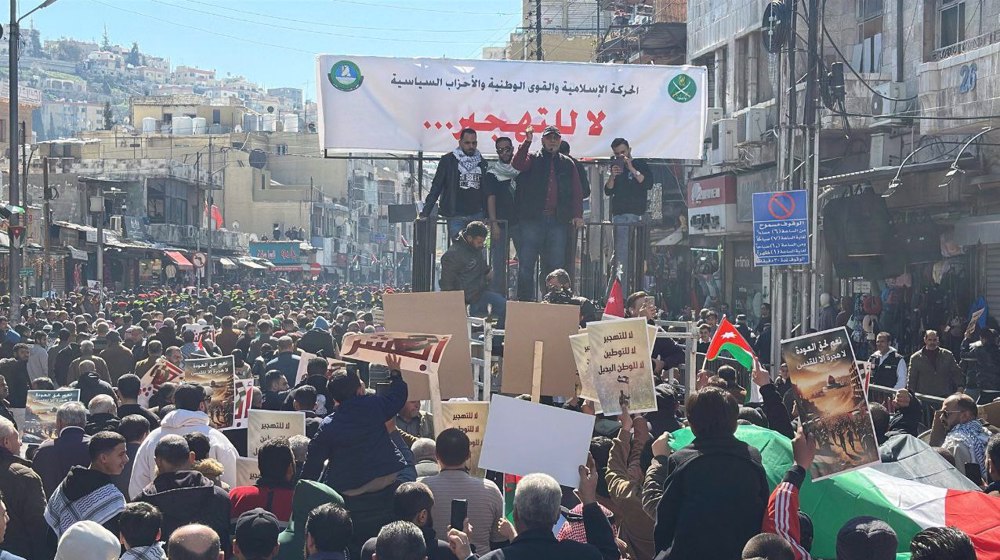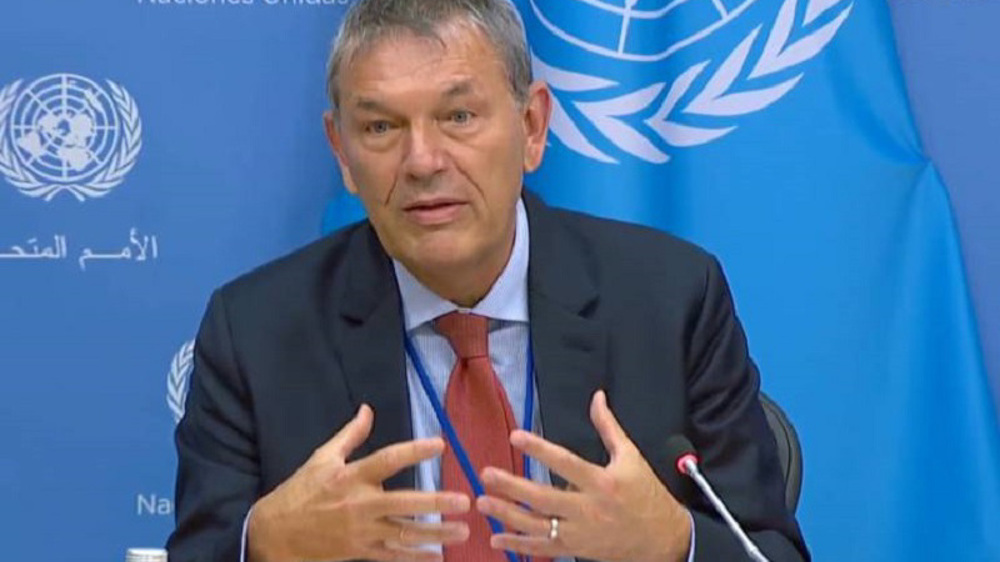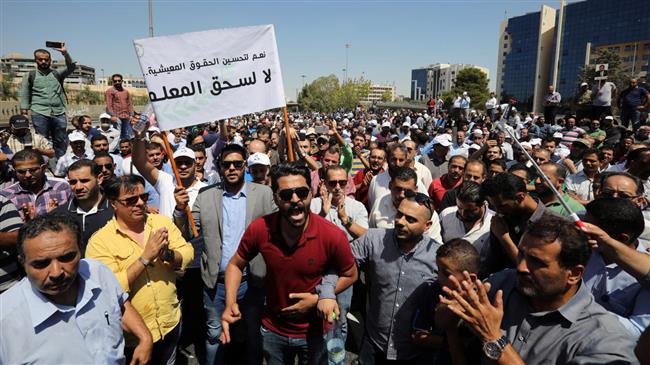Jordan using sweeping gag order to limit coverage of crackdown on opposition teachers’ union: HRW
Human Rights Watch (HRW) says Jordanian authorities have resorted to an extensive gag order, harassment and arrests to limit media coverage of ongoing protests demanding the release of leading members of the opposition-run teachers’ union.
The New York-based body said in a report on Tuesday that it had interviewed eight local and foreign journalists operating in the deeply indebted kingdom earlier this year.
“All said that over the past few years, they have experienced increased restrictions on their reporting in the form of gag orders, harassment by security forces, and withholding of permits to report,” HRW said.
The rights body further noted that Jordanian officials have arrested at least two journalists in relation to their coverage of ongoing teachers’ protests, and two were beaten by security forces while attempting to cover the rallies.
Two other journalists told HRW they are now required to obtain a second permission in addition to their accreditation to be able to cover protests. One journalist said that even though they fulfilled all the requirements for such permission, it was withheld.
Journalist and women's rights activist Rana al-Husseini said she found herself self-censoring repeatedly to avoid falling foul of the crackdown.
“They have to allow for more press freedom. We cannot talk, we cannot address issues that matter to the public. They should allow us to operate freely – or everything will sound like it is coming out a government mouthpiece,” she complained.
Michael Page, deputy director in the Middle East and North Africa division at Human Rights Watch, said Jordan’s arbitrary measures such as gag orders and arrests of journalists were “only the latest in a series of restrictions on press freedoms in the country.”
“Jordan’s shrinking space for journalists to operate reflects the country’s slide into repression,” he pointed out.
The Jordanian government on July 25 arrested leaders of the 100,000-strong union, raided its offices and suspended its activity for two years, in what was considered as a major crackdown on a group that has become a leading source of dissent.
Prosecutors charged Nasser Nawasreh, the acting head of the syndicate, with incitement as well as financial and administrative wrongdoing.
The Jordanian Teachers Syndicate went on strike last year, and closed its offices across the country for a month.
In recent weeks, its leaders have criticized the government of failing to stand committed to a deal struck last October that ended the strike.
The agreement included a 50 percent pay rise this year, which authorities now say cannot afford due to the economic fallout of the coronavirus pandemic.
Opposition activists say the government has been exercising stringent emergency laws since March, when the coronavirus lockdown was enacted, in order to curtail civil and political rights.
Protests have grown in recent years in Jordan over degrading living standards, corruption and the slow pace of political reforms.

Jordanians rally en masse to censure Trump's Gaza takeover plan

Jordan rejects US proposal to relocate Palestinians

UNRWA unraveled amid Israel's allegations, reduced intl. support
Trump’s announcement of nuclear talks with Iran chagrins Netanyahu
VIDEO | Gaza before and after October 7-P2
VIDEO | Gaza: How much worse can it get?
Former Israeli PM Olmert: Netanyahu inciting settler violence
VIDEO | Trump’s health cuts spark nationwide protests
Euronext says US resembling emerging market as trade war escalates
Iranian intelligence forces dismantle Takfiri terrorist network
VIDEO | Press TV's news headlines









 This makes it easy to access the Press TV website
This makes it easy to access the Press TV website